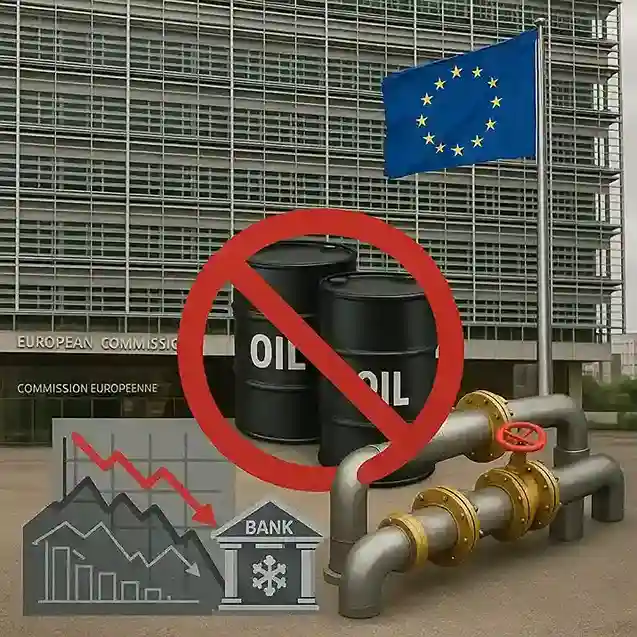EU Imposes Fresh Sanctions on Russia’s Energy and Financial Sectors

EU Imposes Fresh Sanctions on Russia’s Energy and Financial Sectors
BRUSSELS, Belgium – The European Union has announced a new wave of sanctions on Russia, targeting its vital energy and financial sectors in response to Moscow’s ongoing actions in Ukraine.
The latest measures include restrictions on Russian oil and gas exports, tighter controls on financial transactions, and the freezing of assets linked to major state-owned enterprises. EU officials emphasized that the sanctions are designed to increase pressure on Russia while minimizing the impact on European economies.
Energy Exports Under Pressure
The sanctions place new limits on Russian crude oil and liquefied natural gas (LNG), aiming to reduce Europe’s reliance on Russian energy supplies. Analysts warn that while the move could strain Russia’s revenues, it may also raise energy costs globally.
Financial Sector Restrictions
In addition to energy, the EU has expanded restrictions on Russian banks and financial institutions, blocking access to European markets and investment opportunities. This includes bans on raising capital in European exchanges and tighter scrutiny of cross-border transactions.
Broader Geopolitical Impact
European leaders stressed that the sanctions are part of a coordinated international effort alongside the United States and other allies. Russia has condemned the measures, warning of retaliatory steps and accusing the EU of escalating tensions.
The sanctions mark another chapter in the intensifying standoff between Russia and Western nations, with significant implications for global energy markets and international finance.


